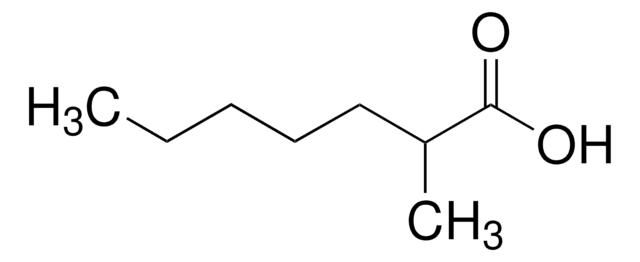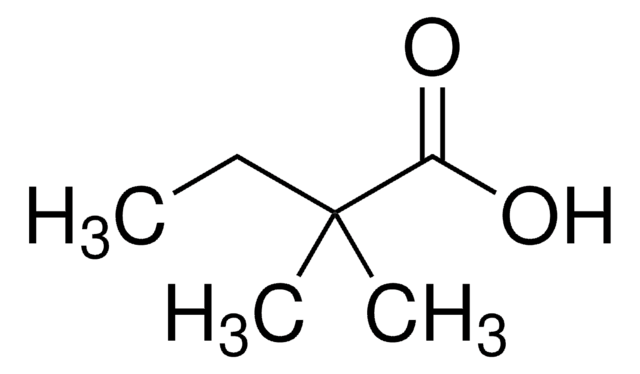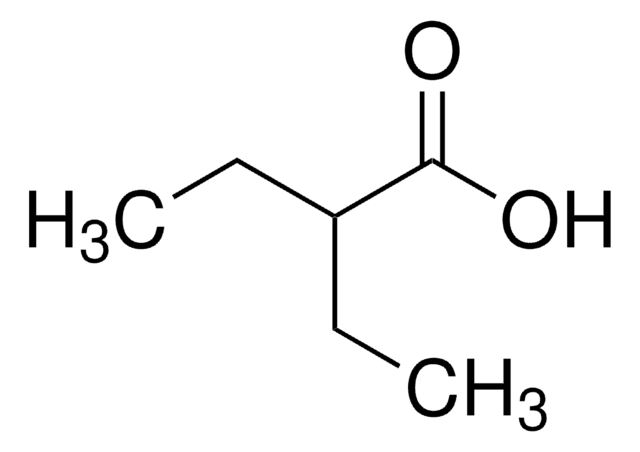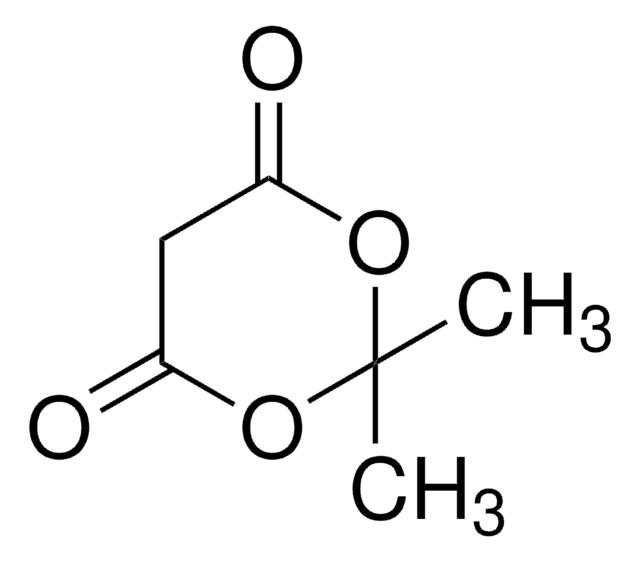338273
2-Methylhexanoic acid
99%
Synonym(s):
2-Methylcaproic acid
Sign Into View Organizational & Contract Pricing
All Photos(1)
About This Item
Linear Formula:
CH3(CH2)3CH(CH3)COOH
CAS Number:
Molecular Weight:
130.18
Beilstein:
1721227
EC Number:
MDL number:
UNSPSC Code:
12352100
PubChem Substance ID:
NACRES:
NA.22
Recommended Products
vapor pressure
0.0576 mmHg ( 25 °C)(lit.)
Quality Level
Assay
99%
form
liquid
refractive index
n20/D 1.422 (lit.)
bp
209-210 °C (lit.)
density
0.918 g/mL at 25 °C (lit.)
functional group
carboxylic acid
SMILES string
CCCCC(C)C(O)=O
InChI
1S/C7H14O2/c1-3-4-5-6(2)7(8)9/h6H,3-5H2,1-2H3,(H,8,9)
InChI key
CVKMFSAVYPAZTQ-UHFFFAOYSA-N
Looking for similar products? Visit Product Comparison Guide
Related Categories
Signal Word
Danger
Hazard Statements
Precautionary Statements
Hazard Classifications
Eye Dam. 1 - Flam. Liq. 3 - Skin Corr. 1B
Storage Class Code
3 - Flammable liquids
WGK
WGK 2
Flash Point(F)
134.6 °F - closed cup
Flash Point(C)
57 °C - closed cup
Personal Protective Equipment
dust mask type N95 (US), Eyeshields, Gloves
Choose from one of the most recent versions:
Already Own This Product?
Find documentation for the products that you have recently purchased in the Document Library.
Customers Also Viewed
Fawzia H Abdel-Rahman et al.
Journal of environmental science and health. Part. B, Pesticides, food contaminants, and agricultural wastes, 43(8), 680-685 (2008-10-23)
Thirty-three organic acids and furfural metabolites were examined for their nematicidal activity against plant-parasitic, free-living and predacious nematodes. Propionic acid, 2-methylhexanoic acid, lactic acid, maleic acid, and furic acid were the most effective nematicides among normal chain organic acids, branched
J Julák et al.
Medical science monitor : international medical journal of experimental and clinical research, 6(3), 605-610 (2001-02-24)
The volatile fatty acid profiles were determined by a simple gas chromatographic method in 375 microbiologically positive and negative blood cultures. Aerobic bacteria yielded profiles with low content of acids, some of which were chromatographically negative. Anaerobic bacteria produced more
How is chemical interesterification initiated: Nucleophilic substitution or a-proton abstraction?.
Liu L.
Journal of the American Oil Chemists' Society, 81(4), 331-337 (2004)
Our team of scientists has experience in all areas of research including Life Science, Material Science, Chemical Synthesis, Chromatography, Analytical and many others.
Contact Technical Service














